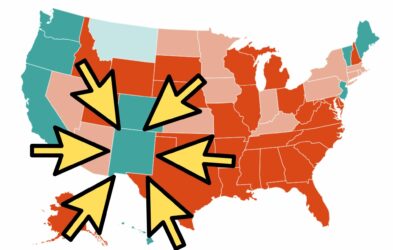By Valerie Lovelace
Maine Should Have a Death with Dignity Law
Maine’s legislature recently failed to pass LD 1270, An Act Regarding Patient-Directed Care at the End-of-Life. The bill would have allowed a qualifying, terminally ill adult to ask for a prescription medication to take at a time of their choosing as their death becomes imminent. It had a very clear process and protected all who chose to participate while forcing none who are morally opposed.
LD 1270 should have passed. It was modeled on the same law Vermont passed in 2013. Vermont’s law has been working exactly as intended. At last count, eleven people have exercised use of an end-of-life prescription in that state.
Opposition to This Legislation Is Hogwash
California’s legislature stalled SB 128, a similar bill, due to fierce opposition from some organized religious and disability rights groups.
In Tennessee, where a bill was referred to summer study, former legislator, John Jay Hooker, now 84 and dying, has sued his state in an attempt to gain his own liberty in death, asking that he be granted the civil liberty to ask his doctor for a life-ending prescription to take at the end. His physician is willing to write the prescription if granted legal permission to do so. Like bills in Maine, California, and elsewhere, Tennessee’s Death with Dignity bill is meeting the same resistance from the same groups spouting the same tired rhetoric.
Oregon’s Death with Dignity law has been in effect since 1997. Despite the fact that seventeen years of data and nine independent research studies prove the laws are working as intended, activist groups still feel they should prevent any movement at all in the discussion around civil liberty and dying. It’s hogwash.
In Oregon, Washington, and Vermont the World Has Failed to End
Is the issue controversial? Yes. Does an end-of-life prescription law demand careful, thoughtful legislation? Absolutely.
Dying wishes are very private. There are physicians, nurses, palliative care specialists, hospice folks, clergy, legislators, disabled people, family members, patients, pharmacists, and so forth, who fully understand the issues and concerns, and help to draft sound legislation and policies for implementation.
The fact that organized religious and disability groups, neither of which, by the way, speak for everyone who is disabled or religious, are involved in a crusade to squash each attempt at legislation is not an indication that the legislation is bad or that the issue is wrong. It’s an indication that people aren’t willing to read the bills, learn about the issues, or recognize that what a person needs while dying is a private and some could argue sacred matter.
But it should be sacred to the needs of the individual and their circumstances, not sacred to the ideas of others who wish to assert their beliefs over those who believe differently. Those who skew the truth suggest over and over that even a good law will result in total disaster and the end of the world as we know it.
The same was said for abolition, women’s voting rights, desegregation, freedom in marriage, and is argued for every other issue involving social change and civil liberty. It’s a good cue: If opposition is out making noise about how all of society as we know it will collapse if we allow such a thing to happen, then it must be about social change and civil liberty.
I Want Liberty
A very small number of people need this legislation. Less than one half of one percent of all deaths in Oregon occurred through the state’s Death with Dignity law. That number means this year there are around 30 to 35 people in Maine who will die without the civil liberty they need. Their doctors, even if willing, cannot legally help them. I know at least two of them. And it isn’t right. It isn’t right that special interest groups with their own agendas dictate for the rest of us how our dying ought to go.
I want social change. I want liberty. I don’t want to die the way someone else thinks I should.
About the Author
Our long-time supporter in Maine, Valerie Lovelace, is the executive director of It’s My Death, which she founded to honor a promise to her sister Dee, dying of cancer, “to teach others how to be with dying, how to speak and listen to one another the way we had learned to speak and listen, and how to go on even when afraid.” She is an inter-faith minister, ordained by calling, studying and practicing in the traditions of her elders and teachers, who are Native American, Christian, and Buddhist. She is a hospice volunteer, artist, and the parent of three adult children. She is also a homeopathic practitioner and a Reiki Master, retired from the U.S. Navy, and a trained EMT.
Read our open call for guest writers →
Image by Ken Rowland.

No comments.